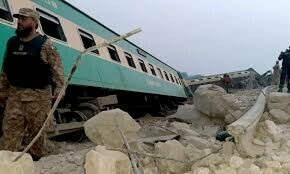LAHORE: As cotton sowing season starts in Punjab, the province on Saturday warned the federal government to either fix an indicative price of Rs3,000 per 40kg for the commodity or risk losing up to 50pc of acreage for the most important crop of the country.
In a letter to the federation, the provincial government maintained that farmers were reluctant to sow cotton because they had suffered huge economic losses on the crop during the last two years, and feared further losses.
Punjab not only wanted the federal government to fix a support price, but also induct the Trading Corporation of Pakistan to make timely arrangements for purchasing at least two million bales for stabilising the cotton market once harvesting began.
Explaining background of the correspondence, an official of the agriculture department said weather pattern and market forces had necessitated official intervention in crop trading. Unpredictable rain patterns and regular flooding, both local and national, had led to huge water logging, especially in the core cotton belt.
Cotton, being a crop of the dry areas, had lost huge tracks because of the changing pattern of sub-soil water. After sowing, the crop regularly suffered erratic weather – heavy torrential downpours coupled with hot weather only leads to pest attack. The farmers neither had pesticides nor financial muscle or management skills to deal with the situation.
On the other hand, the official said, such weather conditions suit competitive crops such as rice, sugarcane and maize, which farmers were now turning to in droves. These crops, along with fodder in certain pockets, had emerged as most suitable alternatives for cotton. The cotton area was already on decline because of these factors; from 6.2 million acres in 2011-12, it had come down to 5.5 million -- a loss of 700,000 acres. This year, the department feared more loss. Though it has fixed a target of 4.7 million acres for 9.5 million bales, but both figures sound mythical given ground realities where no farmer was ready to risk the crop for abovementioned factors, he concluded.
“There are so many uncertainties about cotton that famers have no choice but to avoid the crop,” claimed Naeem Hotiana of Sahiwal.
There was no dependable seed, new pests were attacking the crop against whom the farmers did not have any protection or pesticides, climate change had robbed farmers of any confidence in the final yield and dwindling world market had proven to be the last proverbial nail in the coffin.
He further said the crop was sure to lose a huge chunk of acreage and only those farmers would go for it who had no other crop option. With so many doubts afflicting the crop, the federal government must come up with some kind of an insurance package if it wanted the crop to survive. Otherwise, cotton, which was already on a downhill tumble, would lose more very quickly, he feared.
Published in Dawn, May 15th, 2016














































Dear visitor, the comments section is undergoing an overhaul and will return soon.